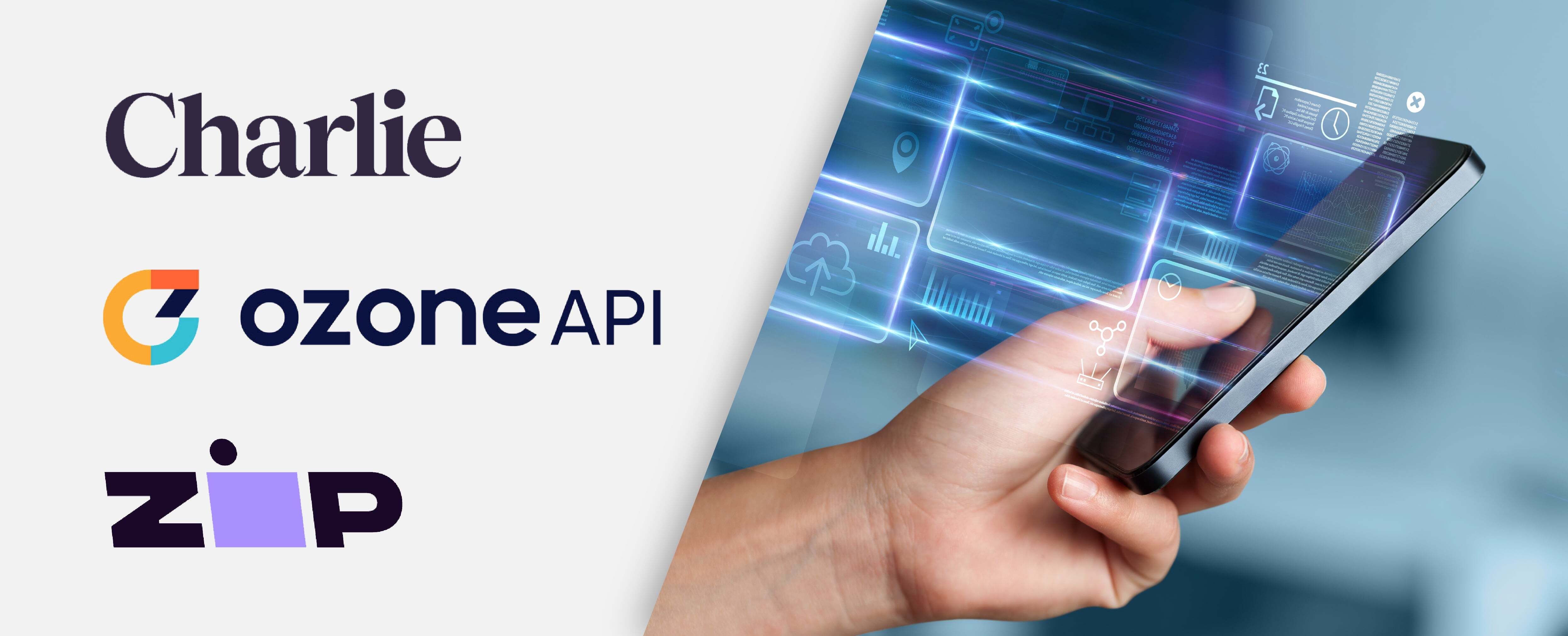These Entrepreneurs Are Making a Mark on Some Remarkable Banking Trends

In the past year and a half, we’ve aired 36 episodes of Money isn’t Everything, our podcast during which I talk with entrepreneurs about the work they’re doing that could reshape financial services. Here are recaps of a few striking ideas shared by guests about some of today’s buzziest industry trends: TikTok, open banking, and buy now, pay later. Each one carries important implications for financial services executives.
Buckle Up. This neobank CEO is making a splash on TikTok
TikTok is hardly the first place you’d expect a neobank for older adults to show up. Yet, that’s exactly where Charlie co-founder and CEO Kevin Nazemi is creating content.
“Our journey with TikTok started with some experimentation,” says Nazemi on a recent Money isn’t Everything episode. “We ran some ads on TikTok to try to get people to sign up for our service, and we found that customers were there, and as importantly, family members of older Americans were there.”
So, Kevin began filming short videos about fraud, aiming to help consumers avoid scams. “The data shows that if you're aware of how a scam operates, you're 80% less likely to fall for it,” Nazemi says. “And so, I just grabbed my phone, started walking down the street where I live near Venice Beach, and started to record these one-minute snippets on scams.”
According to Pew Research Center, a third of U.S. adults use TikTok. Kevin's videos on subjects like Caller ID spoofing and text toll scams have drawn dozens of thousands of views.
The golden nugget: As a banker, it’s easy to dismiss TikTok with its dance videos, questionable personal finance advice, and beauty tutorials. But the platform thrives on whether content resonates with users rather than follower counts. “As long as it's resonating, they're going to keep pushing it out there,” Nazemi says.
Episode: The Neobank Founder Using TikTok to Fight Scams
* * *
Open banking: The great money debate
In the United States, JPMorgan Chase opened Pandora’s Box in mid-July when it announced plans to charge data aggregators for access to the bank’s application programming interfaces. Reactions have been passionate and split, but the debate over the business model matters, and it has precedent abroad. In some countries, it’s illegal for banks to charge other companies for access to customer balance and transaction data.
“In a number of different countries, that’s seen as a data right,” says Huw Davies, CEO and co-founder at Ozone API and a former banker. “Banks have to implement the capabilities to allow trusted third parties to access it on the customer's behalf, but that doesn't mean there shouldn't be a business model that helps.”
Among Davies’ suggestions: Banks could monetize APIs that let customers prove their identity elsewhere. “They’ve spent a lot of time getting to know their customers, validating their identity, and that can help third parties. There's a lot of space for monetization of complex payments and solving the payment value chain.”
Another revenue path is indirect: keeping API calls free if they open routes for acquiring new customers or selling additional products. “I think we'll see a lot of different models come out, but we're seeing banks start to really test and learn,” Davies says.
The golden nugget: Financial institutions face pressure to earn a return on the infrastructure they’re building, but the legal issues remain thorny.
The Consumer Financial Protection Bureau is currently seeking comments, particularly about fees, on the U.S. open banking rule. The agency’s original draft banned banks from charging fees for data access, but that rule was almost tossed out until Chase made its July announcement and the crypto community likened it to Operation Choke Point 3.0. Now, the agency is recalibrating and requesting input. The outcome is uncertain, but community banks can weigh in with their open banking wish list until Oct. 21.
Episode: The Great API Debate: Should Banks Charge for Data Access? with Huw Davies
* * *
The industry has a judgment problem. It’s time to change that
Too many financial services execs apply their assumptions about how people “should” pay, and it’s creating a judgment problem, according to Joe Heck, U.S. CEO of Zip, a buy now, pay later provider.
“If you have money, there's always pressure about what you are doing with it, and when you don't have money, there's pressure on ‘how do I survive,’” Heck says. “The system is built heavily on judgment with really small amounts of information.”
Opponents slam BNPL for showing up in smaller-ticket items like DoorDash orders or discretionary purchases like Coachella tickets. But adoption data tells a different story. On average, consumers make nearly four BNPL transactions and spend about $500 annually. And the trend is accelerating: eMarketer projects U.S. BNPL transaction volume will grow 15% in 2025, from $94.3 billion in 2024 to $108.4 billion.
Anecdotally, Heck suggests considering someone who uses BNPL to pay for groceries because he just got a flat tire and had to use his monthly savings to pay for that unexpected expense. “We probably wouldn't have judged them had they used the credit for the tire and cash for groceries,” Heck says. “That’s not the right way to think about it. They're optimizing in the moment and using credit to facilitate the working capital they need to manage their day-to-day life. I think that's where BNPL is really emerging and playing a role.”
The golden nugget: To be sure, the debate on BNPL is cutthroat. (Here’s another take.) But Heck’s perspective reframes a bigger concept: Empathy isn’t a fringe idea; it’s the next competitive advantage.
Episode: U.S. Zip CEO: Stop Judging Buy Now, Pay Later
Mary Wisniewski is editor-at-large and director of content at Cornerstone Advisors. Tune in to Mary’s Money isn’t Everything podcast and follow her on LinkedIn.